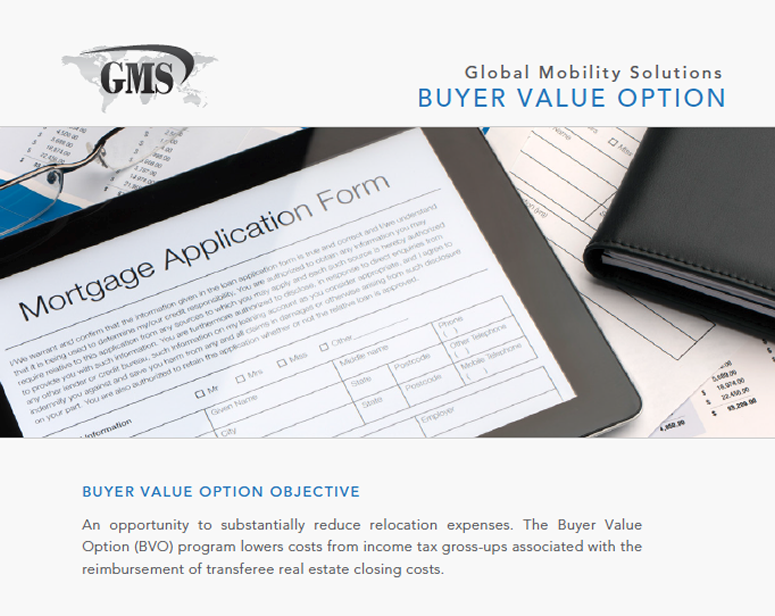How does a Mortgage Appraisal compare to a Relocation Appraisal? Many Global Mobility Solutions clients offer home sale programs as part of a transferee’s relocation package. To facilitate the home sale, two appraisals are required. However, these two appraisals have very different purposes. Understanding these differences is important for clients as they work with their Relocation Management Company. Knowing the differences will help clients manage a successful relocation.
GMS spoke with Joe Gurth, Vice President at Fidelity Residential Solutions who agreed to share his advice and guidance on the differences between a Mortgage Appraisal and a Relocation Appraisal.
What are the Differences Between a Mortgage Appraisal Versus a Relocation Appraisal?
According to Joe Gurth, Fidelity Residential Solutions identifies 8 clear differences between a Mortgage Appraisal and a Relocation Appraisal. GMS clients should learn about these differences. They should also understand how the differences relate to their company’s relocation program.
In looking at these two types of appraisals, it is evident there are significantly vast differences in four distinct areas:
- Purpose
- Use
- Marketing
- Analysis
Reviewing these four areas with a goal of identifying the 8 clear differences between a Mortgage Appraisal and a Relocation Appraisal will provide important insight and clarity.
Area #1: Purpose of a Mortgage Appraisal versus a Relocation Appraisal
- A Mortgage Appraisal has a singular purpose: to provide an estimate of the home’s market value. This value may not correspond with the sales price on the purchase contract. In fact, some homes may appraise for more than the contract sales price. Alternatively, some homes may appraise for less than the contract sales price. By comparison, a Relocation Appraisal is meant to provide an estimate of the anticipated sales price. The value of the home is not a factor in a Relocation Appraisal; the only factor is the sales price.
- When a Mortgage Appraisal is created, the decision making timeframe is long term. Some mortgages may have a life of 30 years. As a result, mortgage lenders peer into the distant future to help ensure the home’s value will remain intact over the mortgage’s life term. By comparison, a Relocation Appraisal has a short term timeframe for decision making. This short timeframe may cover only up to 120 days. During these 120 days, the transferee’s relocation process will undergo planning, review, and implementation.
Area #2: Use of a Mortgage Appraisal versus a Relocation Appraisal
- A Mortgage Appraisal is meant to help facilitate the mortgage lending process. It is the mortgage lender who receives the Mortgage Appraisal. The lender may examine various indicators that reflect the home’s value, its condition, and other factors as they consider their lending decisions. By comparison, a Relocation Appraisal is only intended to help facilitate a corporate relocation. It is the client who receives the Relocation Appraisal. The client may be looking at indicators that relate to how long the home may stay on the market before it is sold. Most Client Relocation policies require two Relocation Appraisals be completed, then typically average those results to create the Corporate Buyout Price.
Special Appraisal Forms
- A Mortgage Appraisal is prepared using the Uniform Residential Appraisal Form (1004). This is conducted by a trained and licensed Mortgage Appraisal professional. These professionals usually work for a licensed Appraisal Management Company. This appraisal professional is working for the mortgage lender. By comparison, a Relocation Appraisal is prepared using the Worldwide ERC® Summary Appraisal Form (updated 2010). This is conducted by a trained and licensed real estate appraisal professional following Worldwide ERC®’s specific set of definitions and guidelines. This appraisal professional is working for the client.
- Included in a Mortgage Appraisal are points covering the design and appeal of a home, however these are not necessarily the major points for a lender’s consideration. By comparison, for a Relocation Appraisal the design and appeal of a home are of critical consideration. The short timeframe of a Relocation Appraisal (up to 120 days or 4 months) means design and appeal may have a significant impact on the corporate relocation process.
Area #3: Marketing Time and Market Value of a Mortgage Appraisal versus a Relocation Appraisal
- A Mortgage Appraisal’s marketing time may be thought of as comparatively unlimited. It is not tied to a specific, time-defined process. Mortgage terms have note specific dates, but dates may be able to change if the lender agrees. Terms such as the interest rate or points might also affect the timing. By comparison, a Relocation Appraisal is most certainly tied to a specific time-defined process. Marketing time is not to exceed the 120 days/4 month timeframe that covers the transferee’s relocation process.
- A Mortgage Appraisal is conducted only after a home has already been on the market. As a result, changes may have been instituted for the home’s marketing program prior to the appraisal. Any number of other factors may also have changed, perhaps in response to marketing feedback or issues homeowners have taken care of. All of this information may impact the market value of the home, and as a result may impact the Mortgage Appraisal. By comparison, marketing a home occurs after the date of a Relocation Appraisal. Also, each Appraiser must make an opinion about the time the home will be on the market.
Area #4: Retrospective Analysis with a Mortgage Appraisal versus a Relocation Appraisal
- What is a retrospective analysis for an appraisal? Such an analysis is an overall review of factors that could impact the appraisal’s results. These factors may include risks that could affect the sale price of the home. This information is specifically used for forecasting purposes. A Mortgage Appraisal does not provide for any forecasting in a retrospective analysis. By comparison, a Relocation Appraisal does include an element of forecasting. This is important for clients and their budgeting processes. With a forecast, clients can further understand aspects of the Relocation Appraisal that may impact budgets in the future.
What Should Employers Expect?
It is important for employers to expect that transferees who may be part of a home sale program during a relocation may not clearly understand the differences between a Mortgage Appraisal and a Relocation Appraisal. Employers should also expect that they are the client for the Relocation Appraisal. As a result, it is the employer who will receive the Appraisal from the professional.
What Should Employers do?
Employers should understand the difference between a Mortgage Appraisal and a Relocation Appraisal. Employers should determine how best to communicate guidance for their transferees. They may have a number of questions regarding their home’s Mortgage Appraisal versus the Relocation Appraisal. It is important for employers to work with their Relocation Management Company to understand the purpose and use of a Relocation Appraisal and how it relates to their company’s relocation and home sale program.
Conclusion
Global Mobility Solutions’ team of global relocation experts has helped thousands of our clients with their corporate relocation programs. We can help your company understand the differences between a Mortgage Appraisal versus a Relocation Appraisal. We can also help your company understand how these appraisals relate to your company’s home sale program with the expert assistance of Joe Gurth and the team at Fidelity Residential Solutions.
GMS was the first relocation company to register as a “.com.” The company also created the first online interactive tools and calculators, and revolutionized the entire relocation industry. GMS continues to set the industry pace as the pioneer in innovation and technology solutions with its proprietary MyRelocation® technology platform.
Learn best practices from Global Mobility Solutions, the relocation industry and technology experts who are dedicated to keeping you informed and connected. Contact our experts online to learn more about the differences between a Mortgage Appraisal versus a Relocation Appraisal, or give us a call at 800.617.1904 or 480.922.0700 today.
We're Here to Help! Request a Courtesy Consultation
Are you ready to talk to a Mobility Pro? Learn how GMS can optimize your mobility program, enhance your policies to meet today’s unique challenges, receive an in-depth industry benchmark, or simply ask us a question. Your Mobility Pro will be in touch within 1 business day for a no-pressure, courtesy consultation.











